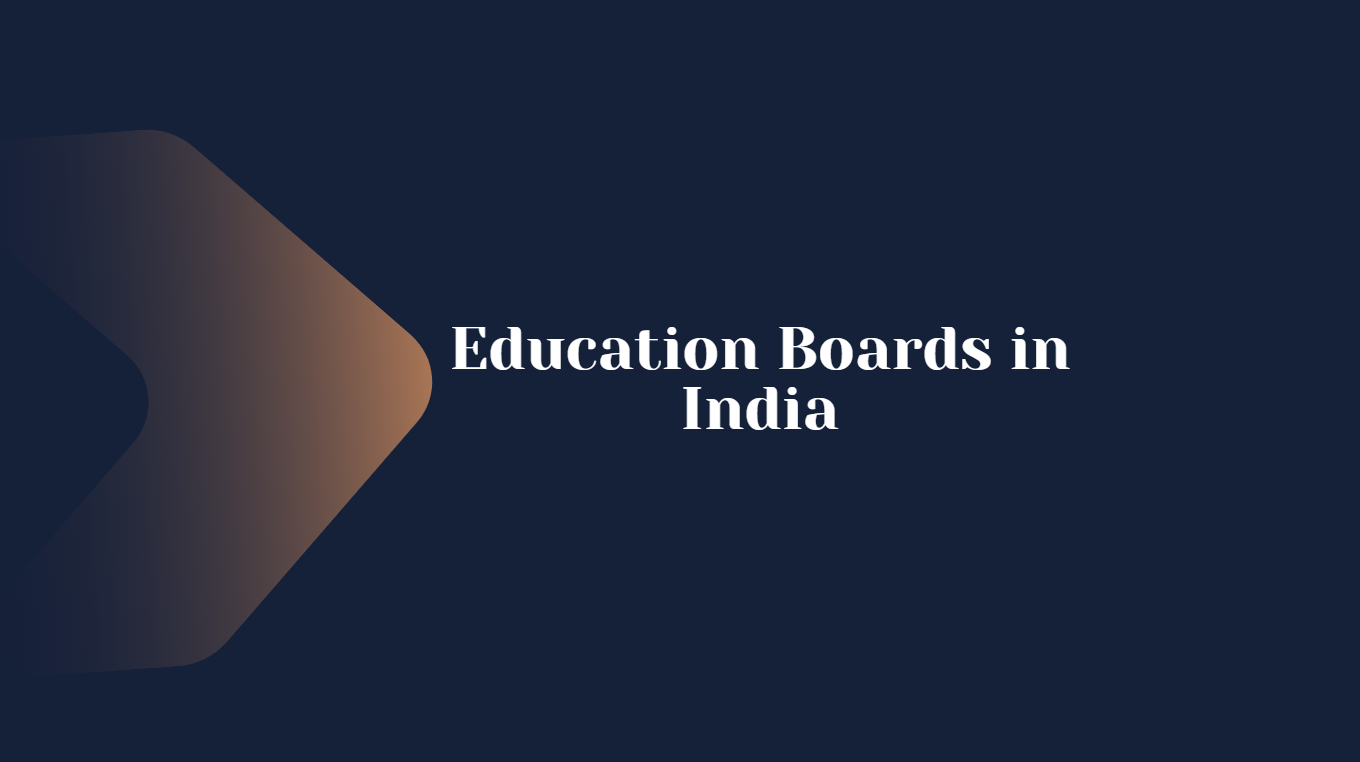What are Different Education Boards in India?

In India, various education boards govern the school education system, each catering to different curricula and educational approaches. After qualifying from these education boards, students can opt their higher education such as Graduation from Central and State Universities, IITs, IIITs, NITs for B.E. and B.Tech., and then after Post Graduation management degrees from IIMs. You can find below all types of Board in India running the education system for the college going students.
1. Central Board of Secondary Education (CBSE)
CBSE is reputed and one of the most widely acclaimed national boards in India. It dictates a standardized, national curriculum as the way to preserve and safeguard the uniformity in education throughout the country. The board examinations for classes 10 and 12 conducted by CBSE are referred as SSCE(Secondary School Certificate Examination ) and HSC (Higher Secondary Certificate) respectively.
2. Indian Certificate of Secondary Education (ICSE)
Few things are completely owned and controlled by a single board that is ICSE. The ICSE curriculum is well known for its complete package and the practicality and application-oriented approach compared with other boards. The Indian Schools Certificate Examination Board conducts two exams namely Indian Certificate of Secondary Education and Indian School Certificate both for 10thand 12th standards.
3. State Boards
The Indian education system is based on the model where each state has its unique state board of education, there is a UP state board and MP state board. In this case, it is up to state boards to provide curricula in line with their preferences on the matter, which may differ from state to state. Board exams are conducted by the local boards for class 10 and 12 at the end of the respective classes, giving a certificate of matriculation or intermediate to students who qualified.
4. National Institute of Open Schooling (NIOS)
NIOS is on autonomous statutory body and is under the Union Ministry of Human Resource Development (MHRD). It supports distance and online learning programs at the secondary and senior secondary levels. NIOS simply conducts online exams for secondary and senior secondary levels.
5. International Baccalaureate (IB)
The International baccalaureate board (IB board) is a education board that is carrying International curriculum in scope. It supports a multidimensional educational program that is tackled in an academic, personal, and social development manner. Students give the IB Degree Examination at the end of the whole program.
6. Cambridge Assessment International Education (CAIE)
CAIE academese is affiliated by the University of Cambridge; it is responsible for officers who are tasked to offer international qualifications. It gives a common curriculum and a testing program. An individual sits for the Cambridge IGCSE, AS and A level exams in the UK.
7. Council for the Indian School Certificate Examinations (CISCE)
CISCE is an independent agency which organizes written as well as the practical examinations for the ICSE (Indian Certificate of Secondary Education) and ISC (Indian School Certificate). The board is to be responsible for ensuring that the young adults achieve a balanced education by blending academic learning with different extracurricular activities. It is just as it is conducting the ICSE and the ISC examinations.
8. State Open Schools
Some states are realizing that open schools can be developed to offer the students with a flexible format of education. Increase the awareness about state open schools and distance learning schools like, Delhi state open school, UP state open school, etc. by offering distance education programs. They conduct exams for both classes 10 and 12 which would be like school boards and so on.
According to the controlled nature of the curriculum and assessment, it will make the parents and students choose what educational system compatible with their preferences, career goal and the way they learn. Every board stands out on its own merit and has some specific characteristics thus very much forming the diverse backdrop of education in India.
Discover more from Newskart
Subscribe to get the latest posts sent to your email.


Comments are closed.